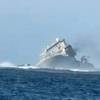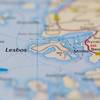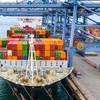ABS Creates Black Sea Technical Advisory Committee
The formation of the committee is the result of continuing expansion of ABS activity in the region. The classification society maintains offices and provides area-wide, exclusive field surveyor coverage throughout the region. In recognition of the busy Turkish shipbuilding industry and the growing shipbuilding capability in Romania and Ukraine, the society also recently established a full engineering office at its regional headquarters in Istanbul. The office provides full plan review capability. More than 40 shipyards are now located in the region. Turkish shipbuilders alone have significantly increased their orderbooks over the past year and the country is projected to move to the number eight position in the league of shipbuilding nations’ by 2008. Other shipyards in the region have forged alliances or attracted ownership participation from Asian and North European shipbuilders and are handling projects from complete panamax tankers from the Daewoo Mangalia yard in Romania to smaller hulls ready for outfitting by European yards. Shipyards in Ukraine and Bulgaria are also seeing a resurgence in their shipbuilding activity and shipyards in Romania are booked up to 2009. The region is increasing its production of materials and equipment, including Ukrainian sourced steel plate, to supply the regional shipbuilding market and meet growing export demand.
One type of vessel, the chemical carrier in the 13,000 to 18,000 dwt range, is being built in the region to ABS class in unprecedented numbers. For owners and operators of these specialized vessels, ABS provides its proprietary software, ChemicalShip, to speed up plan approval time to IBC code compliance. In addition to an overview of ABS and shipping industry activity, ABS discussed small container ship designs and provided the Committee with a detailed presentation on the IACS Common Structural Rules and their application to tankers and bulk carriers. The new coating performance standards were also discussed as well as details of the technology programs and research currently being undertaken by the society.












